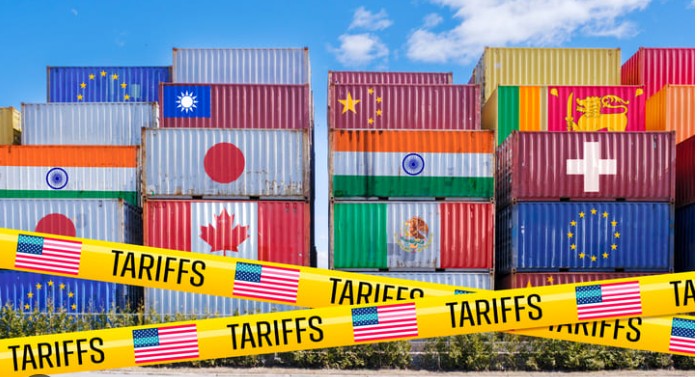US Urges G7 to Hit China and India With Tariffs Over Russian Oil Purchases

The United States is pushing its G7 allies to impose sweeping new tariffs on China and India, accusing both countries of helping to sustain Russia’s war effort by continuing to import large volumes of discounted Russian crude oil. According to a U.S. policy document Washington is urging the G7 to introduce secondary tariffs ranging from 50 to 100 percent on countries that have been, in Washington’s view, enabling the Kremlin to evade the full impact of Western sanctions.
The proposal was reportedly discussed during a video call among finance ministers of the G7 on Friday, as President Donald Trump steps up efforts to secure a negotiated peace deal in Ukraine. The U.S. position paper, circulated ahead of the call, argues that Beijing and New Delhi have profited from their continued oil trade with Moscow, calling them “enablers and profiteers” who are helping to prolong the war. Trump’s administration is urging not only the European Union but now the entire G7 to take coordinated action against both Asian powers.
This marks a significant shift in Washington’s approach. While earlier measures focused on capping the price of Russian oil to curb Moscow’s revenues, the latest proposal introduces a far more confrontational economic strategy that could spark friction with two of the world’s largest economies. The paper calls for tariffs to be applied swiftly and uniformly, portraying them as necessary leverage to force Russia into serious peace negotiations. The administration views this economic pressure as a more effective tool than military escalation or continued arms support.
India and China have become the largest buyers of Russian crude since the start of the full scale invasion of Ukraine in 2022, with both countries defending their actions as legal and economically necessary. India has repeatedly stated that it is purchasing oil through open market mechanisms and not violating any sanctions frameworks. China, while officially calling for peace and diplomatic dialogue, has consistently refused to condemn Russia’s aggression or restrict its trade ties.
If implemented, the tariffs would represent a major escalation in the West’s efforts to isolate Russia economically. However, the proposal could also risk significant diplomatic fallout. India and China are both members of the BRICS group and have positioned themselves as champions of a “multipolar” global order resistant to Western pressure. Any punitive measures from the G7 are likely to be met with sharp pushback, potentially triggering retaliatory tariffs or a broader deterioration in global trade relations.
Within the G7, it remains unclear whether all member states will back the U.S. approach. Some European countries, particularly Germany and France, may be reluctant to provoke a trade war with India and China, especially as they face economic headwinds at home. Japan, another G7 member with strong economic ties to India and a delicate relationship with China, may also hesitate to adopt such sweeping measures. The challenge for Washington will be to build consensus within the group, something that has become increasingly difficult in the current geopolitical climate.
President Trump, who has taken a more transactional and pressure driven approach to foreign policy, sees economic leverage as the best path toward ending the war. In recent weeks, he has intensified his calls for a comprehensive settlement, even as many in Kyiv and European capitals remain wary of any deal that could reward Russian aggression or lead to Ukrainian territorial concessions.
The tariff proposal comes ahead of the United Nations General Assembly, where Ukraine’s future is expected to be a central topic. With global opinion fractured and traditional alliances under stress, Washington’s latest move signals its willingness to reshape the rules of international economic engagement even at the risk of global economic disruption.
